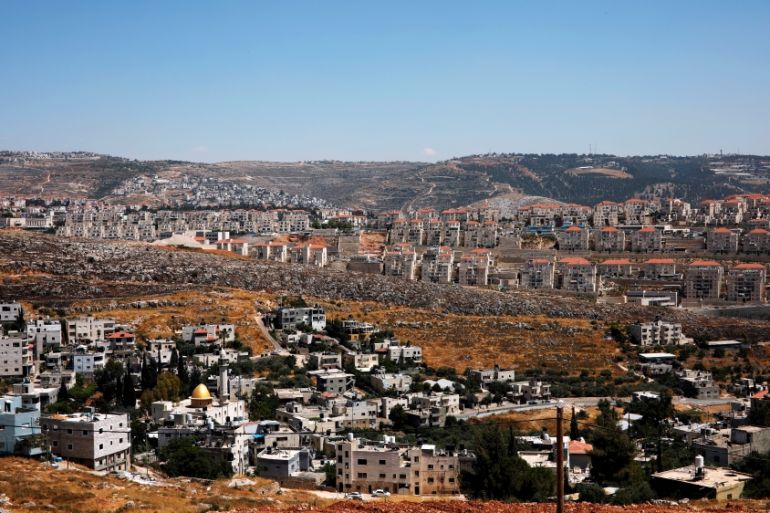Palestinian towns ‘hemmed in’ by Israel’s discriminatory policies
Israeli government has for decades been enforcing discriminatory land practices inside Israel, Human Rights Watch says.

Palestinians with Israeli citizenship are being denied access to land for housing to accommodate “natural population growth”, reflecting Israel’s policy of confining Palestinian communities even beyond the occupied territories, says a new Human Rights Watch (HRW) report.
The US-based rights group said on Tuesday the Israeli government’s policy favours Jewish citizens as decades of land confiscations and discriminatory policies have restricted Palestinian citizens to densely populated towns and villages that have little room to expand.
Keep reading
list of 3 itemsHow Israeli citizens are becoming stateless
A moment of truth for Israel-Palestine
It also said the Israeli government “nurtures the growth and expansion” of neighbouring predominantly Jewish communities, many built on the ruins of Palestinian villages destroyed during the 1948 Nakba, what Palestinians call the catastrophe that befell them in the war that led to the establishment of Israel when hundreds of thousands of Palestinians were forcibly displaced from their homes.
“Israeli policy on both sides of the Green Line restricts Palestinians to dense population centers while maximising the land available for Jewish communities,” said Eric Goldstein, acting Middle East executive director at HRW.
|
|
“These practices are well-known when it comes to the occupied West Bank, but Israeli authorities are also enforcing discriminatory land practices inside Israel.”
Despite the fact that Palestinian citizens of Israel constitute 21 percent of the country’s population, Israeli and Palestinian rights groups estimated in 2017 that less than 3 percent of all land in Israel falls under the jurisdiction of Palestinian municipalities, the report said.
The Israeli government directly controls 93 percent of the land in the country, including occupied East Jerusalem. A government agency, the Israel Land Authority (ILA), manages and allocates these state lands, according to HRW.
Nearly half of the ILA’s members belong to the Jewish National Fund (JNF), whose explicit mandate is to “develop and lease land for Jews and not any other segment of the population”, HRW noted.
Additionally, many small Jewish towns have admissions committees that effectively bar Palestinians from living there. These committees are usually legally authorised and have the power to market state lands and determine prerequisites for residency.
This is also the case in Palestinian Bedouin villages in the Negev, most of which are unrecognised. Israeli authorities regularly carry out demolition orders in the Negev on the premise that these villages lack building permits, which residents say are impossible to obtain.
‘Words on paper’
Since 1948, Israel has authorised the development of more than 900 Jewish population centres, compared with just a handful of townships and villages for Palestinians with Israeli citizenship.
It has also approved the building of roads and other infrastructure around Palestinian communities, further preventing expansion.
Omar Shakir, HRW’s Israel and Palestine director, said it is “very clear” that Palestinian towns and villages are being “boxed in”.
“Israeli planning policies and land confiscations over many years have reduced them to a series of dense population centres while Jewish communities are allowed to thrive,” Shakir told Al Jazeera.
The Arab Centre for Alternative Planning, based in Israel, estimates that 60,000 to 70,000 homes in Israel, excluding Jerusalem, are at risk of demolition.
While the Israeli government has recognised in recent years that this a “serious problem”, Shakir said there have not been any concrete steps to implement plans and proposals that would help alleviate the problem.
What is needed is significant investment in these communities and allocation of state land, Shakir added.
Similar policies have also been used to limit the growth of Palestinian communities in the occupied West Bank, the report noted, where home demolitions, land confiscation, and the expansion of illegal Jewish settlements have not subsided.